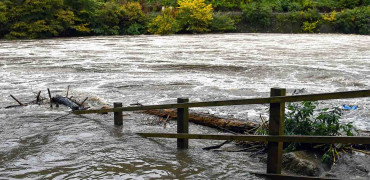Mark Carney is a Canadian economist and banker who served as the governor of The Bank of Canada from 2008 to 2013 and the governor of The Bank of England from 2013 to 2020.
Carney's actions as Governor of the Bank of Canada are said to have played a major role in helping Canada avoid the worst impacts of the financial crisis
On July 1st 2013, Carney succeeded Sir Mervyn King as governor of The Bank of England. He was the first non-Briton to be appointed to the role since the bank was established in 1694.
Carney was then appointed as United Nations special envoy for CLIMATE ACTION AND FINANCE as he stepped down as governor of the Bank of England in March 2020.
He has now taken a leading, global position on climate change and has a huge influence on economic policies, that will benefit the planet and help reduce carbon emissions.
The UK HAD credibility on climate change … but not any more
A moron premium!
As well as being a fan of Mark Carney, I’m also huge fan of podcasts. I’d even say I’ve become a podcast addict, listening to pods on housing, history, politics and climate change.
So, to listen to one of my favourite podcasts - ‘The Rest is Politics - Leading’ presented by Alistair Campbell and Rory Stewart - , published on the 6th of November this year (2023) in conversation with Mark Carney, I felt I’d struck podcast ecological gold.
It was a fascinating listen the content of which is worth exploring here.
The podcast began by discussing the broader economic problems caused by Brexit and the disastrous tenure of Liz Truss along with her Chancellor Kwasi Kwarteng’s shockingly naïve (not-so-mini) budget, that triggered a deep domestic financial crisis and higher mortgage costs for millions of people in Britain.
Economists balked at the idea that £45bn of unfunded tax cuts for the rich could ever catalyse economic growth and pay for itself in the way the government argued.
There was massive criticism of the mini-budget from Carney’s former employer Goldman Sachs as well as the Bank of America and the International Monetary Fund.
It seems even the Bank of England weren’t expecting the Truss/Kwarteng economic suicide bomb. The Bank intervened with a promise to buy up to £65bn of government bonds to save funds responsible for managing money on behalf of UK pensioners from collapse.
City economists spoke of a “moron premium” for Britain.
A moron premium!
It doesn’t get more damaging than that in economic and reputational terms.
Trussonomics continues to bite
We are still feeling the economic bite of Trussonomics and will continue to do so for quite a few years to come.
Economic downturns and political instability negatively affects the country’s ability to fully invest in saving our planet.
Our power on the world stage has been diminished in what has to be considered one of the most terrible premierships in British history.
Liz Truss’s only accolade is that she holds the record for the shortest term in British Prime Ministerial history, being is the post for just 49 days.
If I were to spend climate-change dollars in the UK I would spend it on heat pumps
‘Unfortunate’ cut backs
Carney then moves onto Rishi Sunak and his Tory party conference speech made on the 4th of October 2023, describing Sunak’s announcements to cut back on climate change policies as “unfortunate”.
I knew Carney was an economic genius with an ability to be charming, charismatic and eloquently clear in his analysis of quite complex financial situations, but I had no idea just how passionate and how strongly he feels about Britain building a world-leading, GREEN ECONOMY and what our priorities should be to achieve it.
He praised how Britain had built a very good system for addressing climate change by creating the Climate Change Act (which legally binds the government to reducing greenhouse gas emissions by at least 100% of 1990 levels by 2050), and for creating the Climate Change Committee (CCC), which in effect “marks the government’s homework” on climate change policies.
If the CCC sees a gap in government policy that will prevent us from hitting our climate change targets, then they hold politicians and parliament to account to close that gap. All good stuff.
Lost credibility
But Carney then goes onto say “the UK HAD CREDIBILITY about closing that gap”.
HAD being the operative word.
We HAD credibility.
Carney’s criticism is that Sunak’s government has removed some of the key planks of our climate change policies and have failed to put new policies in place that would close that gap. What is fascinating is that Carney definitively raises our existing, old housing stock as being a very unique climate problem for Britain and says the government is failing to solve this.
I’m going to quote him directly as there is one section of the podcast that is unbelievably important, unequivocally clear and highly significant when coming from such a brilliant climate change economist:
“One of the examples… (of how to close the government’ climate change policy gap)… would be to go directly to homeowners up and down the country and provide them with solutions around a shift to heat pumps.
“Actually get their home energy bills down and address a current problem and make a meaningful dent in UK emissions. The UK has one of the worst housing stocks in terms of emissions.
“They (the current Sunak government) didn’t do that, so they undermined credibility. They put carbon back in the atmosphere by taking out some of the measures.
“And then…on top of that…and I understand there is politics around it…they JUVENALISED the debate with ‘the meat tax’ and ‘the 7 bins’, which chips away at the credibility and clarity of the ambition”.
Now, I’m not even sure that ‘juvenalised’ is a real word. But I absolutely love it.
We need serious politics and we need SERIOUS policies.
For someone as intelligent and well-informed on the climate stage as Mark Carney to call Rishi Sunak’s recent climate announcements as juvenile and undermining the credibility of Britain’s position is absolutely damning.
Flip-flopping around with inconsistent policies that widen the climate change gap, rather than closing it, is bad for Britain and a lost opportunity for our economy.
The case for heat pumps
Carney goes onto say:
“Who is being affected by the energy crisis in the UK right now? It’s households up and down the country, households in the north and the north-east, where the heating bills have been going through the roof…but they basically have a structure of housing that lays them exposed to this, and so the NUMBER 1 PRIORITY should be to address that.
“If I were to spend climate-change dollars in the UK I would spend it on heat pumps, I would spend it on home retrofit…this is also about security…it is about geo-political security.”
What a statement!
Think about it, this is Mark Carney, a global economic and ecological player saying our NUMBER 1 PRIORITY when it comes to climate change is for our country to ecologically improve our old housing stock, install heat pumps to reduce our carbon emissions and reduce energy bills, while increasing our energy security against any threats we may face from other countries.
Carney has clearly lost faith in our current government to do the right thing.
It must have hit Number 10 pretty hard when, just a few days after Rishi’ Sunak’s “unfortunate” Tory Party conference speech, Carney endorsed Labour’s Rachel Reeves as a future chancellor in a message to the Labour Party conference saying she is “a serious economist” and “it is beyond time we put her energy and ideas into action”.
It is time for net-zero climate change, it is time for mass UK housing retrofit and it is time for the end of juvenile politics.
George Clarke is an architect, writer, TV presenter and Ecodan Ambassador




